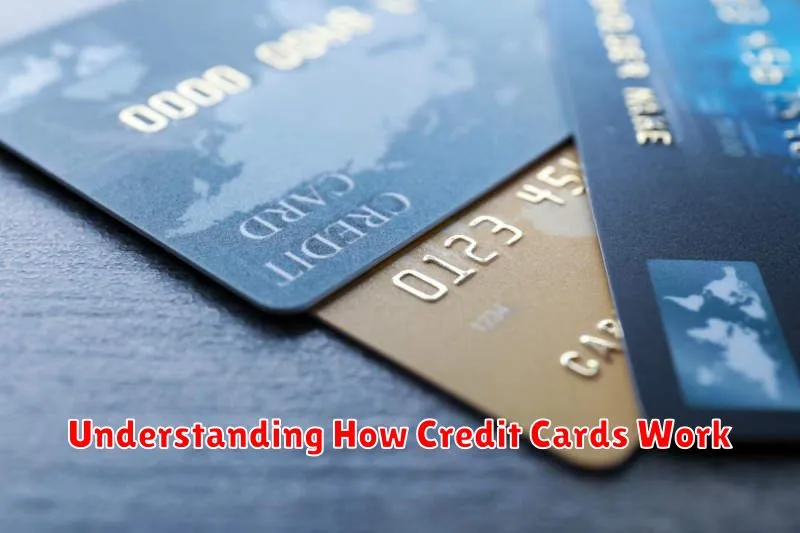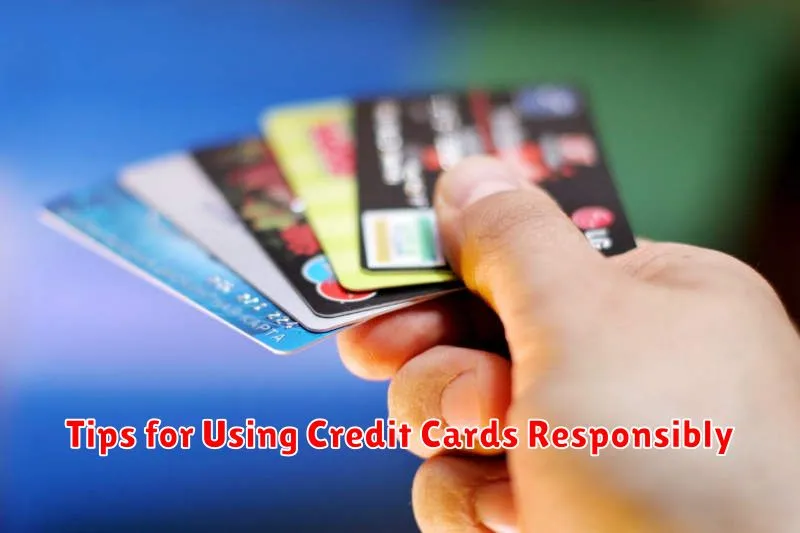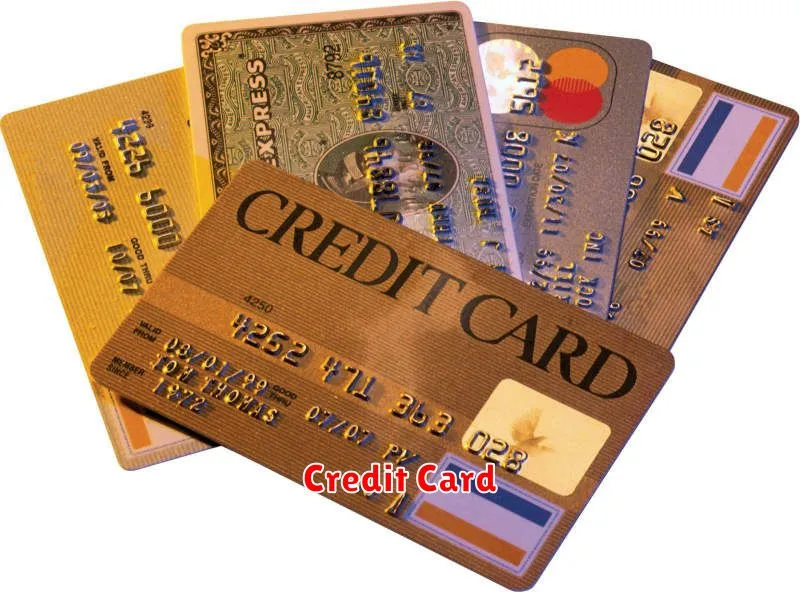Credit cards. They can feel like a trap, luring you into a cycle of debt with tempting offers and easy spending. But what if you could harness the power of credit cards to your advantage, enjoying perks and building your financial strength without falling into the debt trap? It’s entirely possible with the right knowledge and strategy.
This article will explore smart strategies for using credit cards effectively, allowing you to reap the rewards without the burden of debt. We’ll delve into topics like choosing the right card, understanding interest rates and fees, maximizing rewards points, and building a strong credit score. Get ready to make credit cards work for you, not against you!
Understanding How Credit Cards Work

A credit card is essentially a short-term loan provided by a bank or financial institution. When you use your credit card for purchases, you’re borrowing money from the issuer to pay for them. The card itself is not money; it’s a tool to access a line of credit.
Each month, you’ll receive a statement showing your purchases, payments, and the balance owed. You have a grace period to pay off the balance in full without incurring interest. If you don’t pay the full balance, interest charges are added to your remaining balance. This interest is how credit card companies profit.
Credit limits, determined by your creditworthiness, dictate how much you can borrow. Interest rates (APR) vary based on your credit score and market factors. A higher credit score typically gets you a lower interest rate, saving you money in the long run.
Understanding how credit cards work, particularly interest rates and credit limits, is crucial for using them responsibly and avoiding debt.
Benefits and Risks of Using Credit Cards
Credit cards, when used responsibly, offer several benefits. They provide a convenient payment method, eliminating the need to carry large amounts of cash. Credit cards facilitate online shopping and offer a layer of fraud protection, as you are not liable for unauthorized purchases. Additionally, responsible credit card usage can help you build a positive credit history, which is essential for obtaining loans, mortgages, or even renting an apartment. Many credit cards offer rewards programs, allowing you to earn points, miles, or cashback on your purchases, adding further value to your spending.
However, it’s crucial to be aware of the potential risks associated with credit cards. If not managed carefully, credit card usage can lead to debt accumulation. The ease of swiping can result in overspending and high interest rates can quickly make a balance unmanageable. Late payments not only incur fees but also damage your credit score, making it harder to access credit in the future.
How to Choose the Right Credit Card for Your Needs
Choosing the right credit card can seem overwhelming with so many options available. However, by focusing on your spending habits and financial goals, you can narrow down the choices. Start by considering what’s most important to you:
Rewards: Are you enticed by travel points, cashback, or other perks? If so, explore cards that align with your spending categories. For instance, if you dine out frequently, a card offering bonus rewards on restaurant purchases might be ideal.
Interest Rates: If you anticipate carrying a balance, securing a low interest rate is crucial. Look for cards with introductory APR offers or cards specifically designed for balance transfers.
Fees: Pay close attention to annual fees, late payment fees, and foreign transaction fees. Evaluate whether the potential rewards outweigh any associated costs.
Credit Limit: Your credit limit should comfortably accommodate your spending needs without tempting you to overspend. A higher credit limit can also improve your credit utilization ratio, positively impacting your credit score.
Remember, the “best” credit card is subjective and depends entirely on your individual circumstances. By carefully evaluating your needs and comparing offers, you can confidently select a card that aligns with your financial goals.
Tips for Using Credit Cards Responsibly

Using credit cards responsibly can be a great way to build credit and earn rewards. However, it’s important to use them wisely to avoid falling into debt. Here are some tips for using credit cards responsibly:
1. Set a Budget and Stick to It: Before using your credit card, determine how much you can afford to spend each month and stick to that limit. Consider using budgeting apps or spreadsheets to track your expenses.
2. Pay Your Balance in Full Each Month: To avoid interest charges, aim to pay your credit card balance in full by the due date each month. This habit will help you avoid debt and maintain a good credit score.
3. Use Credit Cards for Planned Expenses: It’s generally advisable to use your credit card for planned expenses, such as groceries, gas or online purchases. Avoid using it for impulse purchases or items you can’t afford.
4. Track Your Spending: Regularly review your credit card statements to ensure all charges are accurate and track your spending habits. Identify areas where you can cut back and save money.
5. Understand Interest Rates and Fees: Familiarize yourself with your credit card’s interest rate, annual fees and other charges. Choose a card with a low interest rate and minimal fees to minimize costs.
6. Avoid Cash Advances: Cash advances typically come with high fees and interest rates. It’s best to avoid them unless absolutely necessary.
7. Build a Good Credit History: Using your credit card responsibly and paying your bills on time can help you build a positive credit history. A good credit score can qualify you for better interest rates and loan terms in the future.
How to Pay Off Your Credit Card Balance Every Month
Paying off your credit card balance in full each month is the smartest way to use credit cards without accumulating debt. Here’s how to make it a habit:
1. Budget for It: Before using your credit card, ensure the purchase fits within your monthly budget. Treat your credit card like cash you already have, not as extra spending power.
2. Track Your Spending: Regularly review your credit card statements or use a budgeting app to track your spending in real-time. This helps you stay on top of your balance and avoid overspending.
3. Make Payments More Frequently: Instead of waiting for your monthly statement, consider making bi-weekly payments or paying off smaller purchases immediately online. This keeps your balance lower and more manageable.
4. Automate Your Payments: Set up automatic payments through your bank or credit card issuer to ensure you never miss a due date. Opt for paying the full statement balance to avoid interest charges.
5. Consider Balance Transfers: If you’re struggling with a high interest rate, consider transferring your balance to a card with a 0% introductory APR period. This can give you breathing room to pay down your debt faster without accruing additional interest.
By following these tips, you can enjoy the convenience and rewards of credit cards while maintaining a healthy financial profile. Remember, responsible credit card use is about making timely payments and avoiding the burden of high interest rates.
Avoiding Common Credit Card Traps
Credit cards can be valuable tools for building credit and managing expenses, but they come with inherent risks. Falling into common credit card traps can lead to debt accumulation and damage your financial health. Here’s how to steer clear:
1. Overspending: It’s easy to overspend when you’re not physically handing over cash. Set a strict budget and track your spending diligently to avoid exceeding your limits.
2. Only Making Minimum Payments: While tempting, minimum payments barely touch the principal balance and accrue hefty interest charges. Pay as much as you can above the minimum to save money and get out of debt faster.
3. Ignoring Interest Rates: Credit card interest rates can be notoriously high. Compare rates before choosing a card and aim for a low APR to minimize interest charges.
4. Cash Advance Temptations: Cash advances come with exorbitant fees and higher interest rates than regular purchases. Treat them as a last resort in emergencies only.
5. Missing Payment Due Dates: Late payments incur late fees and can damage your credit score. Set reminders or automate payments to ensure timely settlements.
6. Accumulating Unnecessary Debt: Credit cards shouldn’t finance a lifestyle you can’t afford. Use them responsibly for purchases you can repay quickly.
By understanding and avoiding these common credit card traps, you can harness the benefits of credit cards without jeopardizing your financial well-being.
Maximizing Credit Card Rewards Without Overspending
Credit card rewards programs can offer enticing perks, from cash back and travel miles to points for merchandise. However, it’s crucial to approach these programs strategically to avoid falling into debt. Here’s how to maximize your rewards without overspending:
1. Choose the Right Card: Before diving into the world of rewards, carefully analyze your spending habits. If you frequent gas stations and grocery stores, a card with high cash back on those categories would be ideal. Frequent flyers might benefit from cards offering airline miles or travel perks.
2. Understand the Terms and Conditions: Don’t be swayed solely by flashy sign-up bonuses. Scrutinize the terms and conditions, paying close attention to annual fees, interest rates (APR), and reward redemption rules. A high annual fee might negate the value of rewards if you’re not a high spender.
3. Treat Your Credit Card Like a Debit Card: The golden rule of responsible credit card use is to only spend what you can afford to pay in full each month. Imagine your credit card as a debit card linked to your checking account. This mindset helps curb impulsive purchases and prevents accruing interest charges, which can quickly erode the value of any rewards earned.
4. Set a Budget and Track Your Spending: Create a realistic budget that outlines your monthly expenses and allocates funds for credit card payments. Utilize budgeting apps or spreadsheets to diligently track your spending and ensure you stay within your limits.
5. Pay Your Balance in Full and On Time: To truly reap the benefits of rewards, make it a habit to pay your credit card balance in full by the due date. This practice helps you avoid interest charges and maintains a healthy credit score, which is essential for securing favorable credit terms in the future.
6. Maximize Bonus Categories and Promotions: Many credit cards offer bonus rewards on rotating categories or through special promotions. Stay informed about these opportunities and strategically align your spending to capitalize on them. For instance, if your card offers 5% cash back on groceries in July, concentrate your grocery shopping during that month.
7. Redeem Rewards Strategically: Don’t let your rewards collect dust! Choose redemption options that provide the most value, whether it’s cash back, travel, or merchandise. Sometimes, accumulating rewards for a significant purchase or experience can be more rewarding than redeeming small amounts frequently.
Remember, credit card rewards are a bonus, not a reason to overspend. By implementing these strategies, you can enjoy the perks of rewards programs while maintaining a healthy financial foundation.

